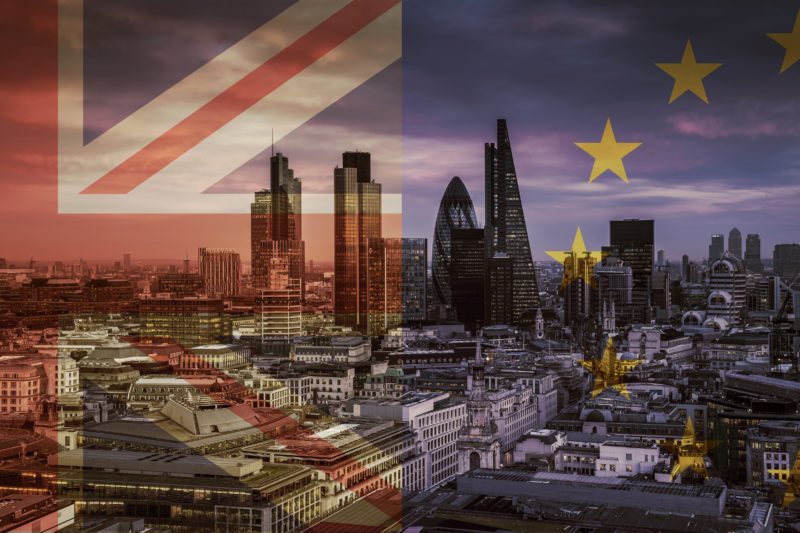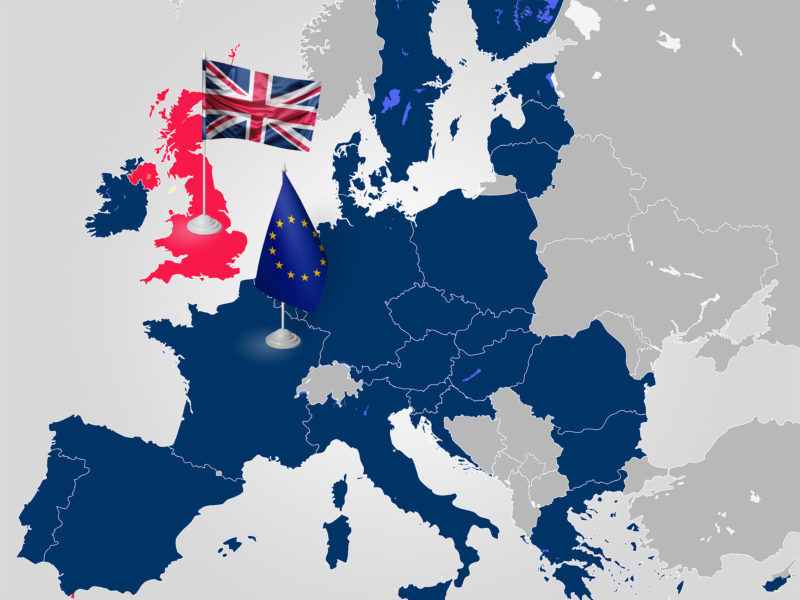Brexit is an ongoing concern for the UK political establishment, and with good reason. If the UK does leave the EU and it does not happen with a smoot
Brexit is an ongoing concern for the UK political establishment, and with good reason. If the UK does leave the EU and it does not happen with a smooth and orderly transition, then everything from dental equipment to ice cream to tree saplings and car parts could be held up at border crossings across the country. Everything from essentials like medical supplies to luxuries like perfumes and aftershaves could find themselves stranded and delayed as international customs checks and border processes need to be undertaken.
But why can’t the UK just… leave? Why does it need to wrangle and negotiate with the EU over all this? Why does it have to be so complicated? The answer lies in the so-called Iron Triangle of Brexit. There are three things the UK wants, but definitionally it cannot have them all. Because of this, it needs to pick two. Except it does not want to, and it is negotiating and struggling and trying to find a way to have its cake and eat it.
But what is the Iron Triangle? Originally a term borrowed from the world of professional management, it describes a situation where you have three things, not all of which can be possessed to their fullest extent at once. In the case of Brexit, these three things are interconnected, interdependent, and because of this ultimately interlocked. The corners of this triangle are as follows
- Maximum Possible Brexit (MPB)
- No hard border between the UK and the Republic of Ireland (RoI)
- No international borders inside UK territory

Maximum Possible Brexit
MPB refers to the notion that after the UK has left the EU it wants there to be functionally no control from the EU over any aspect of its policymaking. This means no jurisdiction from the European Court of Justice, no regulations from the European Parliament. No directives from the European Commission. Absolutely nothing. A fine idea and one that people seemed to think was possible during the referendum campaign, but given that the UK has been embedded in European Union for more than 40 years, this is going to take some significant doing.
If the UK does go down this path though, the UK will be to all the EU states the same thing as just another country. That means it will need a border. You cannot just move things between countries without checks. Safety standards could be different, legislation may vary, and supplies could start coming in slower, or even not at all.
Needless to say, this is causing a great deal of consternation in many different sectors of the UK’s economy, not least any sector that relies on regular supplies of parts and equipment to keep itself going. Everything from coffee machines to factory moulders for PVC window units has parts that need fixing and replacing on a semi-regular basis at least. The concern is that if we move from these spare and replacement parts to be on tap, down to them being sporadic or even just unavailable, we are going to have to move from regular repair and serving of our soap dispensers and computer monitors to making our hydraulic rams and dental compressors last as long as possible.
The simple reality is though that if the UK is going to be a third country to the EU, a border of some kind is inevitable. So if you want MPB you need a border. This then raises the question of where the border should go.
No Hard Border Between the UK and the Republic of Ireland
The consensus is clear. Any return to a hard and defined border between the United Kingdom and the Republic of Ireland will likely result in a return to the violence of the past. This cannot be allowed to happen, and yet it is exactly what Brexit is threatening to do.
The agreement about the lack of a border represents both sides being willing to let the populations of their respective nations have a greater impact in how they want to live. A substantial part of this, although hardly the whole issue, is that both sides have minorities that connect better with the majority across the frontier. Turning that frontier into a border, one that you might need to ask a foreign government’s permission to pass through undermines the trust that makes the Northern Ireland Peace process possible. If you want peace to remain in Northern Ireland, you cannot have a border across the Irish frontier. So where else could the border go?

No Border inside the UK
Imagine a holiday trip that you have planned out perfectly and sensibly in advance, and to save money you’ve decided to stay in the UK. No problem there at all, you might think. You will just hop on the A303 down to the south-west and… what’s that set of barriers in your way. A border crossing? But we’re in the same country?
This would be the bizarre set of circumstances that could emerge if the UK’s border with the rest of the EU is moved to the Irish sea. The problem is that given it is politically impractical to put a border between the two neighbouring countries, the only alternative is to create a buffer somehow. Somewhere that is sort of in the EU but not really, and still in the UK, to an extent. But how would that be fair on the people living in the equivalent of international limbo? What kind of mish-mash of agreements would that be? Would that mean that you would need extra passport checks, or even a visa to visit Belfast if you got a ferry from Liverpool?
The Iron Triangle
This is the fundamental problem summed up in three possibilities
If you want maximum Brexit, you have to have a border somewhere, either between Northern Ireland and the RoI or between Northern Ireland and the rest of the UK.
If you want either borders, then you cannot have a maximum Brexit, and instead, arrange some kind of compromise measure. However, several rounds of voting in Parliament has consistently shown that compromise isn’t something on the mind of the current generation of British politicians. Ultimately though, there are three things on this platter, of which only two can be chosen. Either a choice will be made, or all three will need to be rejected.



















































































































COMMENTS